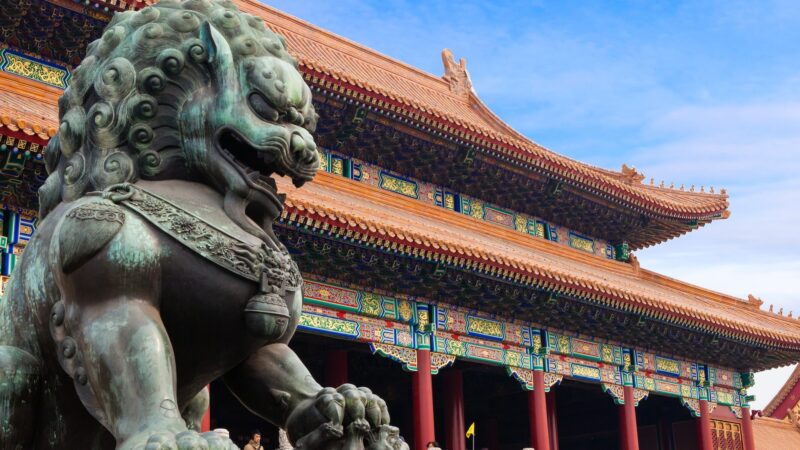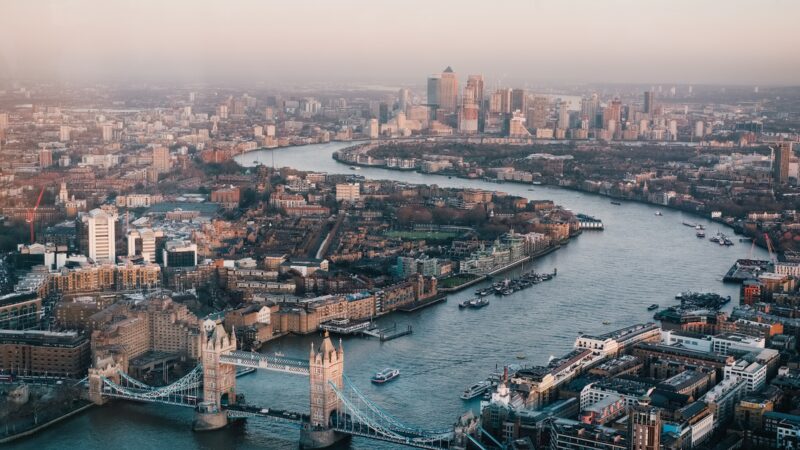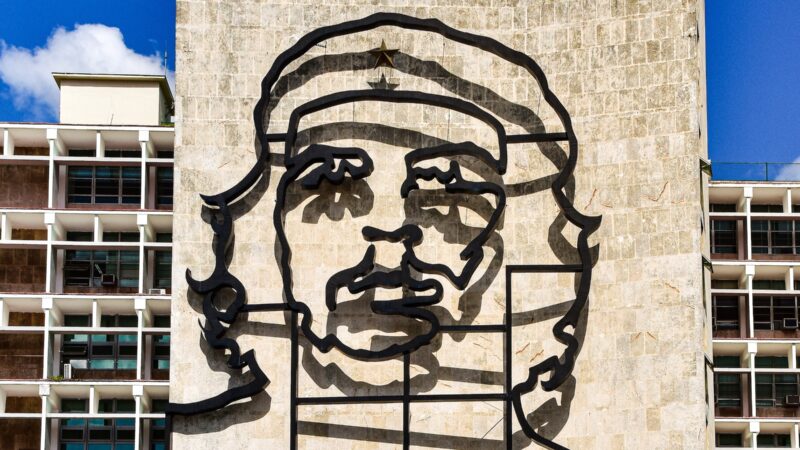The Chinese Revolution – Good Thing, Bad Thing?
This is an extract from the transcript of The Chinese Revolution – Good Thing, Bad Thing? (1949 – Present). Do. The. Reading. and subscribe to Flappr’s YouTube channel!
“Tradition is like a chain that both constrains us and guides us. Of course, we may, especially in our younger years, strain and struggle against this chain. We may perceive faults or flaws, and believe ourselves or our generation to be uniquely perspicacious enough to radically improve upon what our ancestors have made – perhaps even to break the chain entirely and start afresh.
Yet every link in our chain of tradition was once a radical idea too. Everything that today’s conservatives vigorously defend was once argued passionately by reformers of past ages. What is tradition anyway if not a compilation of the best and most proven radical ideas of the past? The unexpectedly beneficial precipitate or residue retrieved after thousands upon thousands of mostly useless and wasteful progressive experimentation.
To be a conservative, therefore, to stick to tradition, is to be almost always right about everything almost all the time – but not quite all the time, and that is the tricky part. How can we improve society, how can we devise better governments, better customs, better habits, better beliefs without breaking the good we have inherited? How can we identify and replace the weaker links in our chain of tradition without totally severing our connection to the past?
I believe we must begin from a place of gratitude. We must hold in our minds a recognition that life can be, and has been, far worse. We must realize there are hard limits to the world, as revealed by science, and unchangeable aspects of human nature, as revealed by history, religion, philosophy, and literature. And these two facts in combination create permanent unsolvable problems for mankind, which we can only evade or mitigate through those traditions we once found so constraining.
To paraphrase the great G.K. Chesterton: “Before you tear down a fence, understand why it was put up in the first place.” I cannot fault a single person for wishing to make a better world for themselves and their children, but I can admonish some persons for being so ungrateful and ignorant, they mistake tradition itself as the cause of every evil under the sun. Small wonder then that their hairbrained alternatives routinely overlook those aspects of society without which it cannot function or perpetuate itself into the future.
And there are other things tied up in tradition besides moral guidance or the management of collective affairs. Tradition also involves how we delve into the mysteries of the universe; how we elevate the basic needs of food, shelter, and clothing into artforms unto themselves; how we represent truth and beauty and locate ourselves within the vast swirling cosmos beyond our all too brief and narrow experience.
It is miraculous that we have come as far as we have. And at any given time, we can throw that all away, through profound ingratitude and foolish innovations. A healthy respect for tradition opens the door to true wisdom. A lack of respect leads only to novelty worship and malign sophistry.
Now, not every tradition is equal, and not everything in a given tradition is worth preserving, but like the Chinese who show such great deference to the wisdom of their ancestors, I wish more in the West would admire or even learn about their own.
Like the Chinese, we are the legatees of a glorious tradition – a tradition that encompasses the poetry of Homer, the curiosity of Eratosthenes, the integrity of Cato, the courage of Saint Boniface, the vision of Michelangelo, the mirth of Mozart, the insights of Descartes, Hume, and Kant, the wit of Voltaire, the ingenuity of Watt, the moral urgency of Lincoln and Douglas.
These and many more are responsible for the unique tradition into which we have been born. And it is this tradition, and no other, which has produced those foundational ideas we all too often take for granted, or assume are the defaults around the world. I am speaking here of the freedom of expression, of inquiry, of conscience. I am speaking of the rule of law, and equality under the law. I am speaking of inalienable rights, of trial by jury, of respect for women, of constitutional order and democratic procedure. I am speaking of evidence based reasoning and religious tolerance.
Now those are all things I wouldn’t give up for all the tea in China. You can have Karl Marx. We’ll give you him. But these are ours. They are the precious gems of our magnificent Western tradition, and if we do nothing else worthwhile in our lives, we can at least safeguard these things from contamination, or annihilation, by those who would thoughtlessly squander their inheritance.”





What I’ve Learnt as a Revolutionary Communist
This article was originally published in November 2021.
I have a confession to make.
A few months ago I was made an official member of the Revolutionary Communist Group after being involved as a participating supporter for about a month and a half. The RCG are, in their own words, Marxist-Leninist, pro-Cuba, pro-Palestine, internationalist, anti-imperialist, anti-racist and anti-capitalist. They believe that capitalism is causing climate change, which they refer to as the ‘climate crisis’, and that socialism/communism is the only way to avert catastrophe.
They believe that the twin forces of imperialism and capitalism work today, and have been working for hundreds of years, to enrich the Western capitalist class by exploiting the labour of the proletariat and plundering the resources of the ‘Global South’. They publish a bi-monthly newspaper entitled ‘Fight Racism! Fight Imperialism!’ which acts as an ideological core around which centre most of the groups discussions.
After two months of twice-weekly zoom calls, leafleting in front of busy train stations and protesting in front of embassies, I was finally invited to become an official member. I rendezvous-ed with two comrades before being taken to a door which was hidden down a dark alleyway and protected by a large iron gate – certainly a fitting location for a revolutionary HQ. Inside was an office and a small library stocked with all manners of communist, socialist and anti-imperialist literature including everything from Chavs by Owen Jones to The Labour Party – A Party Fit For Imperialism by Robert Clough, the group’s leader.
I was presented with a copy of their constitution, a document about security and a third document about sexual harassment (the RCG has had issues with members’ behaviour in the past). It was here, discussing these documents for almost three hours, that I learnt most of what I know now about the RCG as an organisation and the ecosystem it inhabits.
The RCG is about 150-200 members strong with branches across the country – three in London, one in Liverpool, Manchester, Norwich, Glasgow and Edinburgh and possibly more. In terms of organisation and decision-making they use what they call ‘democratic centralism’ – a sprawling mess of committees made up of delegates that appoint other committees that all meet anywhere between once every two weeks and once every two years. They’re also remarkably well funded, despite the fact that their newspaper sells for just 50p. They employ staff full time and rent ‘offices’ up and down the country. They draw income from fundraising events, members dues, newspaper and book sales and donations (both large and small).
Officially, the RCG is against the sectarianism that famously ails the Left. However, one zoom call I was in was dedicated to lambasting the Socialist Workers Party who, I soon learnt, were dirty, menshevik, reactionary Trots. We referred to them as part of the ‘opportunist Left’ who routinely side with the imperialists.
The RCG doesn’t generally maintain good relations with many other major leftist groups. Central to RCG politics is the idea of a ‘labour [small L] aristocracy’ – a core of the working class who have managed to improve their material conditions just slightly and so work against the interests of the wider working class, suppressing real revolutionary activity in order to maintain their cushy positions. The RCG sees the Trade Union movement as the bastion of the labour aristocracy. They see the Labour party also as their greatest enemy – ‘the single greatest barrier to socialism in Britain’.
The RCG takes issue with the SWP specifically over their attitude to Cuba. They believe that most Trotskyists are too critical of socialist revolutions that have occurred in the past and so are not real communists – after all, no revolution will be perfect. The RCG’s issue with the Communist Party of Great Britain (CPGB) is that they resent how the CPGB claims to be the main organisation for communism in this country and uses its coziness with the trade unions as a signifier of legitimacy. However, the RCG believes that this makes the CPGB not much more than an extension of the Labour party, which it despises.
The CPGB-ML (Communist Party of Great Britain – Marxist-Leninist), on the other hand, are much closer politically to the RCG. They also share the same view on the Labour party. However, the CPGB-ML has recently taken a loud anti-trans position and so the RCG wants nothing to do with them.
Socialist Appeal are a group that has organised with the RCG in London before but the two do not get along due to, once again, the former’s (until recent) support for the Labour party every election. The RCG also shares views with Extinction Rebellion but XR now no longer wants anything to do with the RCG because of the RCG’s insistence on selling its communist newspaper at every event its members attend. The RCG insisting on trying to recruit members at every event it attends, including events co-organised with other groups, is a major source of friction and one of the reasons nobody wants to organise with them. It’s also one of the reasons why the RCG has stopped organising with LAFA – the London AntiFascist Assembly.
LAFA, I was told, are a chaotic bunch. They staunchly oppose all forms of hierarchy and make decisions on a ‘horizontalist’ basis. In true anarchist fashion, there are no official leaders or ranks at all in LAFA and decisions are made sort of by whoever takes the initiative. Unfortunately this means that those who become unofficial leaders in the group are accountable to absolutely no-one because they are not technically responsible for anything, and naturally issues arise from this quasi-primitivist state of affairs. Ironically, this makes the London AntiFascist Assembly kind of based.
Interestingly, one organisation with which the RCG has never had any problems is Black Lives Matter. The RCG and Socialist Appeal were (apparently) the only two groups out on the streets in solidarity with BLM last summer – BLM even allowed RCG members to speak at their events. The RCG enjoyed quite a close and amicable relationship with BLM right up until BLM decided at the end of last summer to effectively cease all activity, with the reason given to the RCG being just that ‘the summer has ended’. Presumably, the bulk of BLM’s activist base either had to go back to school or just got bored.
Although the RCG strictly prohibits any illegal activity at any of its protests, one clause of the constitution is ‘a revolution clause’ requiring members to leave their jobs and move house at the discretion of the RCG. I was told this clause has never been invoked and isn’t expected to be invoked for decades at least but is there in case a genuine communist uprising were to take place somewhere in the country and RCG leadership decided that it needed members to move into the area to help. The RCG is intent on staying firmly on the right side of the law for the foreseeable future – supposedly until class consciousness is raised to such a level that the time for revolution arrives. Whether or not history will pan out the way they think it will, only time will tell.
Perhaps most curious was the group’s confused stance on lockdowns. They are fiercely pro-lockdown and pro-mask, but also highly critical of the government’s approach for reasons that are quite vague. Why a communist organisation would want to place unprecedented power in the hands of a government – a Tory government no less – that it thinks operates as the right arm of global capital is beyond me. When I brought this up, a lone voice of dissent in my branch, I was told I had made a ‘valid point’ and that the group needed to discuss the matter further, but that was it. The only explanation I could arrive at was that unfortunately the RCG, and I think the Left generally, are deep in denial about being anti-establishment.
The RCG’s modus operandi is the weekly stall: three or four communists will take a table and a megaphone to a busy location and try to hand out leaflets and sell copies of the FRFI newspaper. The idea was that people whose values loosely align with those of the groups could be contacted and organised by way of these stalls. The law of large numbers means that these stalls are curiously successful – one two-hour stall at the weekend can sell a dozen newspapers and enlist a handful of people to be contacted by the group at a later date. The process of collecting people and funnelling them down the contact-member pipeline is a slow one with a low success rate, but they’re relentless.
Interestingly though, I believe their decades-old activist tradition is actually one of their biggest weaknesses. Ironically, so-called progressives are stuck in the past. The RCG has a very minimal online footprint – it uses its profiles on twitter and Instagram only to post dates for upcoming events. The RCG have so much faith in their traditional method of raising ‘class consciousness’ (translation: spreading communism) that they’re losing the internet arms race and thus their grip on young people – their traditional base. The fact that the group has a large proportion of older members might have something to do with it.
However, Leftists are good at street activism – they’ve been doing it for decades. Leftist activist groups have ingrained in their traditions social technology – sets of practices, behaviours and attitudes – that have developed over time and that their opponents would do well to familiarise themselves with, like looking at the homework of a friend (or in this case, an adversary).
The RCG believes that it is one of very few, maybe even the only, Leftist group in Britain today committed to maintaining a substantial street presence. One of the conditions for membership, after all, is promising to attend at least one street protest a week. The RCG no doubt take their activism seriously, with a comrade even describing the group to me as being made up of ‘professional revolutionaries’. They believe that they are growing and will continue to grow in strength, propelled by financial and then ecological crises. They are very excited for the collapse of the Labour party, which they believe is all-but imminent, because they think it will cause swathes of the Left to lose faith in a parliamentary means of achieving socialism and take to the streets, where the RCG will be waiting for them.
My time as a revolutionary communist has been challenging but what I’ve learned is no doubt valuable. I strongly encourage others to do as I have, if only just for a few weeks or so. Join your local leftist organisation – pick a sect, any sect! Expand your knowledge, see a different perspective and gain skills you might not gain anywhere else. Speak to people with a completely different viewpoint from yours and learn how they think, you’ll be a slightly better and more knowledgeable person for it.
Quote: Leftists are good at street activism. They have ingrained in their traditions social technology that have developed over time and that their opponents should familiarise themselves with.
Photo Credit.